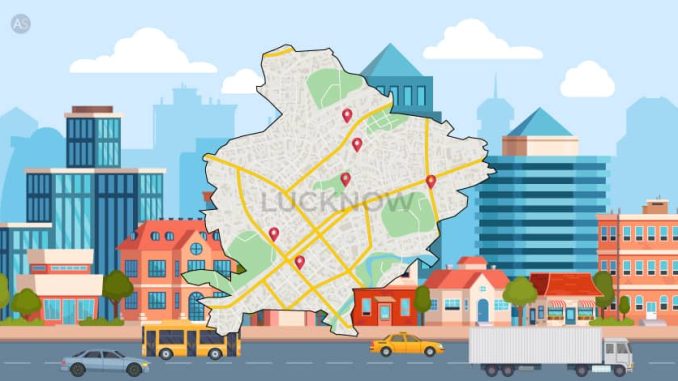
Lucknow, the capital of Uttar Pradesh, is positioning itself as one of India’s next major information technology (IT) destinations. With a robust 40-acre development plan spearheaded by the Uttar Pradesh government, the city is set to welcome state-of-the-art IT parks, incubation centers, and business complexes aimed at attracting both domestic and international tech companies.
Strategic Location & Infrastructure
The proposed IT hub will be developed in the Nadarganj Industrial Area, just 3 kilometers from the Chaudhary Charan Singh International Airport. Its location near the Lucknow–Kanpur highway ensures strong connectivity, making it ideal for tech operations and logistics.
The project is divided into three main zones:
- IT Park: A six-story Grade-A office complex spread across 11.5 acres.
- Business Park: Covering 7.4 acres, it will house corporate offices and shared commercial spaces.
- International Incubation Centre: Dedicated 6.9 acres to support startups, research initiatives, and training programs.
The rest of the land will include green spaces, roads, utilities, parking, and other shared amenities to create a fully integrated tech ecosystem.
The Vision: India’s First AI City
The government has also proposed expanding this area into what it calls the country’s first “AI City.” This extended project, potentially covering 70 acres, is expected to include data centers, residential units for professionals, research labs, training centers, and commercial spaces.
To make this vision a reality, the government is offering:
- Capital subsidies: Up to ₹100 crore for infrastructure and ₹20 crore for IT park development.
- Policy incentives: Including 100% stamp duty exemption, subsidized electricity, and cloud computing credits under the UP IT and Startup Policy.
Support for Startups and Innovation
The IT hub and AI City will be closely integrated with top academic institutions like IIM Lucknow, IIIT Lucknow, and local engineering colleges. These institutions are expected to play a key role in research, talent development, and startup incubation.
The International Incubation Centre will serve as a launch pad for startups in artificial intelligence, cybersecurity, and data science. With mentoring support and government backing, the aim is to create a self-sustaining startup culture in the city.
Corporate Interest and Investment
Major IT players such as Tata Consultancy Services (TCS), Infosys, HCL, and Tech Mahindra have already shown interest in expanding their footprint in Lucknow. The combination of low operational costs, skilled workforce, and improving urban infrastructure is making the city an attractive destination.
Furthermore, the IT hub is expected to create thousands of direct and indirect jobs in the coming years, boosting the region’s economy and reducing migration to traditional tech hubs like Bengaluru and Hyderabad.
Urban Growth and Quality of Life
Lucknow is evolving rapidly with modern residential complexes, educational institutions, healthcare facilities, and shopping malls. The city’s metro rail, ring road, and smart traffic systems enhance its urban appeal, offering professionals a balanced work-life experience.
The development of IT zones is being coordinated with the expansion of townships and lifestyle hubs on Sultanpur Road and Shaheed Path, ensuring that tech professionals have access to quality housing and recreational amenities.
Conclusion
The UP government’s 40-acre IT development plan is more than just infrastructure—it’s a vision to transform Lucknow into a knowledge-driven, innovation-powered city. With strong government support, policy incentives, and rising interest from the private sector, Lucknow is well on its way to becoming a significant player in India’s technology landscape.
This initiative not only promises to create new job opportunities but also places Lucknow firmly on the map as a forward-thinking, tech-driven city ready to compete on the national and global stage.
Leave a Reply